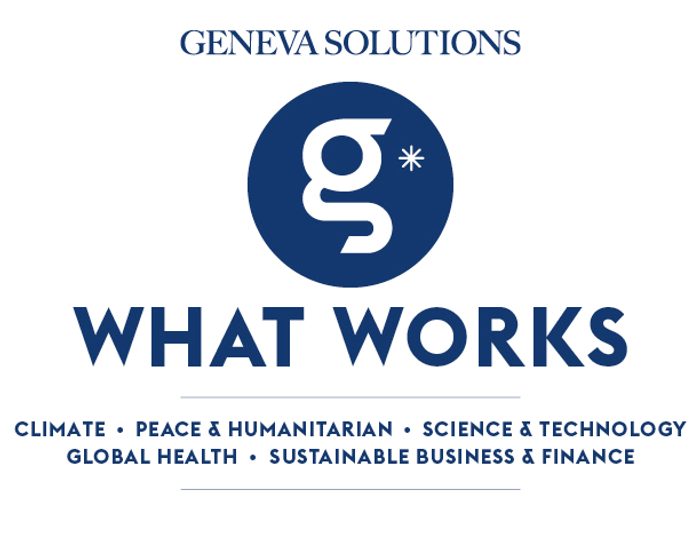Good morning, this is Michelle. Up until now, the US had funded about a quarter of HIV relief. But that golden era of US foreign aid seems to be ending.
While international organisations warn of a setback that would put millions of lives at risk, local actors see no point in crying over spilt milk and are already working to take ownership of what they think should be the future of the HIV response. |

|

Rigat Bishaw, a health worker, speaks with a victim of rape living with HIV at Ayder hospital in Mekele in the Tigray region of northern Ethiopia, 13 Feb 2025. (Keystone/AP Photo/Amanuel Birhane)
|
|
In 2023, $19.8bn was provided for the HIV response, with the United States covering roughly one quarter. The Trump administration’s decision to pause all foreign aid and then terminate thousands of contracts has caused severe disruptions across HIV care services, forcing clinics to close, disrupting supply chains and putting prevention programmes on hold. The impact has been particularly harsh in Africa, home to 65 per cent of the global HIV-positive population, and where countries like Mozambique, Tanzania and the Democratic Republic of the Congo rely on US funding for more than half of their health budgets.
UNAids issued a stark warning on Monday, estimating that without US support, HIV-related deaths could rise by an additional 6.3 million over the next four years – a 10-fold increase from the last count – and new infections could climb by 8.7 million. The Lancet offered more conservative figures on Thursday, but painted an equally bleak picture. UNAids executive director Winnie Byanyima cautioned: “We will see a resurgence of…this disease. We’ll see it come back, and we’ll see people dying the way we saw them in the 90s and in the 2000s.”
But the alarmism in Geneva feels too distant from reality for frontline actors like Florence Riako Anam, the executive director of the Global Network of People Living with HIV. Riako Anam, who is based in Kenya, says she doesn’t have the luxury to wait for the US to come around. “We need our treatment now,” she tells Geneva Solutions.
Read the full story on Geneva Solutions.
|
|
|
‘Make our lungs healthy again’.
The World Health Organization’s second conference on air pollution in Colombia this week is calling for well-planned strategies to reduce emissions of super pollutants, such as black carbon, methane and ozone, hearing from victims and activists, including Amazonian Indigenous representatives.
Health Policy Watch (EN)
|
|
Here’s what else is happening
|
|
🪨There's no rulebook for deep-sea mining. Companies want to push forward anyway.
As negotiators meet this week in Jamaica to discuss regulations for future deep-sea mining, at a session of the UN’s International Seabed Authority, scientists warn of the environmental consequences should mining go ahead in the absence of a rulebook.
|
|
🪸Race to the bottom.
Amid the race to mine critical minerals, a number of companies are hoping to extract mineral-rich nodules from the oceans’ seabeds. But a team of oceanographers say that 40 years after an area of the Pacific Ocean’s floor was mined, the area has still not recovered.
|
|
|
GS news is a new media project covering the world of international cooperation and development. Don’t hesitate to forward our newsletter!
Have a good day!
|

|
|
Avenue du Bouchet 2
1209 Genève
Suisse
|
|
|
|








